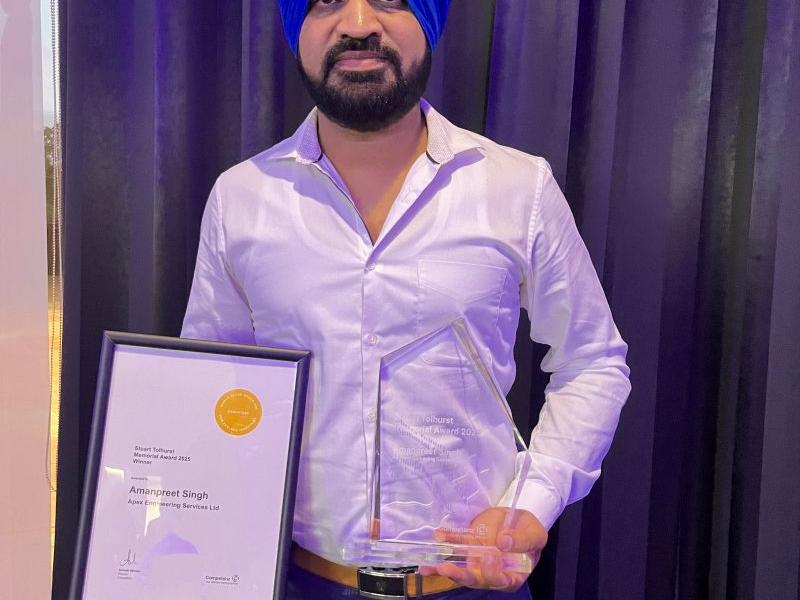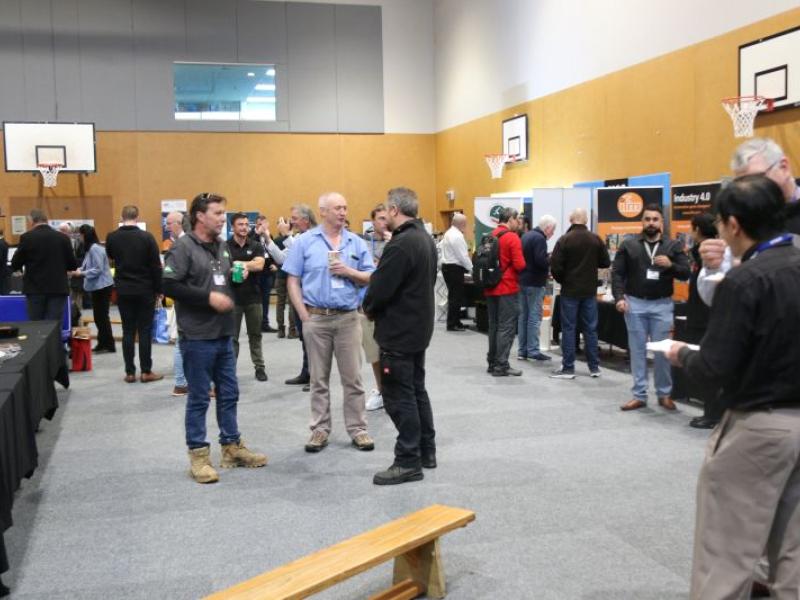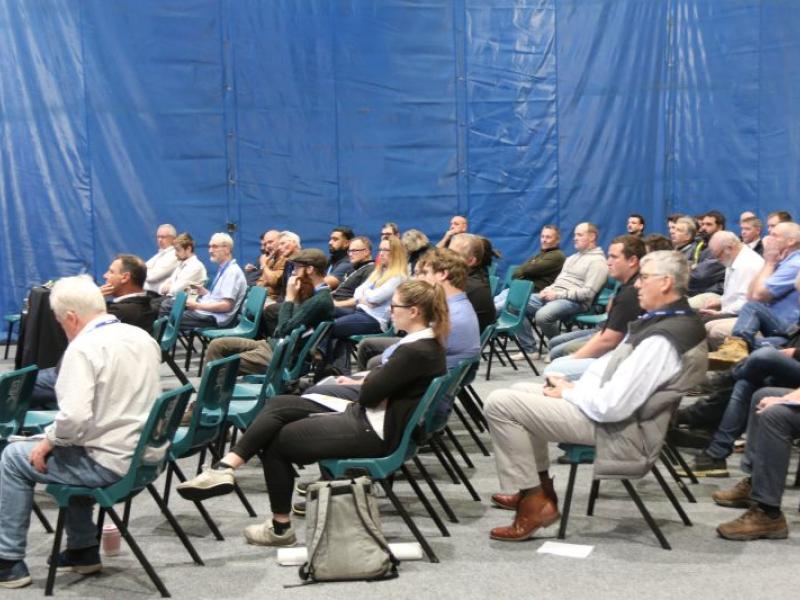Joel Leonard is a maintenance evangelist who is on a global crusade to make maintenance sexy and interesting to the next generation of college leavers. He is also well aware that old-hands are retiring fast – taking their skills and institutional knowledge with them.
He not only wants business owners to do more to encourage young people into the maintenance industry, he wants firms to document what baby boomers do at work today – so their knowledge and skills can be shared with newcomers.
Leonard, who lives in the US State of North Carolina, has worked in the maintenance sector since the 1990s, was vice president of a facility engineering organization, and worked for a computerised maintenance management company.
He shot to fame in 2002 after writing a song about maintenance for a conference he attended in Nashville. Leonard is due to speak at the MESNZ’s maintenance conference in November.
“I love travelling around the world and learning what’s going on in other places and sharing what I know at conferences,” he says.
“I have specialized in trying to build the next generation of skilled technicians. I have become the catalyst between the engineering industry in the US and the rest of society and am trying to get anybody and everybody to better understand and appreciate the value of maintenance jobs.”
Leonard says baby boomers are retiring fast and that not enough people are coming up through the ranks to replace them. Which means the passing down of knowledge and skills from one generation to the next is not happening in many workplaces.
“Companies need to document the maintenance processes,” he says. “There are so many people getting ready to walk out the door and nobody knows what they do. We video rugby matches, but we don’t video what people do at work – to learn from them – we put more time in to watching sport than learning how to do jobs – and that’s crazy.
“We need to literally go around with digital cameras and video the best processes and document them as fast as we can. And then interview the guy so that when he leaves we not only know what he did, but why.
“So when they do walk out the door we have a living history that’s there to help future generations understand what they need to do while at work.
“If a firm has eight people in its maintenance team you are probably going to have eight different ways of doing things. This variance is killing companies from doing maintenance right. It is better to have one set procedure for each job.
“Even if you have bad parts – such as counterfeits – if you don’t do the job right you are still going to have issues. So companies have to start documenting and creating best practice, perpetuating that, and professionalising the maintenance function.”
In reference to 2010’s Deep Water Horizon oil platform disaster in the Gulf of Mexico and July’s train crash in Canada that killed at least 30 people, Leonard says people need to realise that if maintenance isn’t performed properly “we will continue to have disasters”.
“People are using deferred maintenance as a standard model of management, they just look to defer maintenance at any opportunity,” he says. “Business leadership is supposed to be looking at three to five-year business cycles, but they are instead being measured on quarterly business performance. And that has created a mentality where companies have a short-term focus.”
However, Leonard says the introduction of international standards such as ISO 55000 means companies are “starting to take maintenance a bit more seriously”.
“These standards are forcing people to stop deferring things, they will have to start thinking of the long term impact,” he says.
“If companies want a competitive advantage they have got to realise that maintenance is not a cost, but actually a profit contributor. What maintenance people need to help their business managers understand is that short-term savings may generate long-term loss. Firms that invest in maintenance and develop their staff will be a lot more competitive than they otherwise would.”
Leonard says the economic downturn has had a silver lining.
“When things are good, nothing changes,” he says. “But when things are bad the resistance to change, the complacency, goes away and people become more open to new ideas.”
Training
On the training front one thing Leonard suggests firms do is put training opportunities where staff take a rest break. In one factory he organized training videos to be made, and had them played on TVs in break rooms.
“What we did was video record maintenance being done and that has got staff and new recruits up to speed faster,” he says. “They were played during break time.
“I have implemented all sorts of tactics and techniques to try to advance maintenance training, I have even created some video games as well as a smartphone app called Occupy Jobs – which sends people details of vacancies they may never normally get to hear about.
“Businesses need to think about how to build the next generation of maintenance engineers, to encourage youngsters to get involved in the industry, and companies should look at putting succession plans in place.
“With the economic downturn, graduates are starting to realise that a degree doesn’t guarantee success, and now they are beginning to realise that there are other occupations that offer some serious capability in the income streams.”
Counterfeit
In regards to counterfeit products Leonard says there will be big issues in the future due to 3D printing machines.
“Because of 3D printing machines anybody thinks they can be a manufacturer,” he says. “You are going to see more counterfeit products and more people taking the cheaper option when it comes to buying parts – because the capability is going to be there.
“People who set up 3D printing operations are going to be pretty dangerous…I have met with some US officials about this, and 3D printing is still far from being a reliable process.
“I have heard of defence contractors finding counterfeit parts sent for use in aeroplanes, and that creates some serious liability issues.
“Stronger supply chain management is needed, and companies in the US are investing in that. We are seeing spot inspections where people go in and check on the parts being used by some in the defence areas – to check that the quality is there.”
Celebrate
Leonard says maintenance people should be celebrated more, to make them the rock stars of businesses.
“We do not glorify people doing maintenance, nobody is celebrating the functions that the economy lives off,” he says. “If we don’t celebrate it we won’t be able to perpetuate it.
“When I visted Toyota in Australia, I was told they are paying their maintenance people more than their engineers – because they can get engineers – they can’t get maintenance people.
“In the US, October 4 is National Manufacturing Day, we are actually glorifying manufacturing now. It wasn’t that long ago that manufacturing was a dirty word. Now there are grassroots movements about it, and on the day there will be plant tours, open houses, there will be all sorts of events across the United States, to showcase that manufacturing is really where the economy needs to be going.
“It wasn’t that long ago that most people thought manufacturing in the US needed to be phased out and sent to China. But that is now being reversed with firms bringing manufacturing back home.”
Leonard says companies in the US are coming round to the idea that building products at home is more cost effective than having it done in factories off-shore.
When he visits New Zealand to speak at this year’s MESNZ conference he knows he will be preaching to the converted.
“It is just a shame that the people who need to hear what I have to say are unlikely to come to a conference such as this,” he says.
“But we do need to convince people to go to their education centres, go to government, and ask them to invest in the technology and processes that will sustain them for the years to come.
“If New Zealand invests in its manufacturing workforce, builds talent pipelines, and a sustainable workforce with apprenticeships, it will have capabilities in the future.”
Joel Leonard on LinkedIn: http://tinyurl.com/m7cymgw






